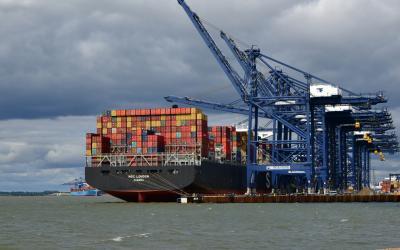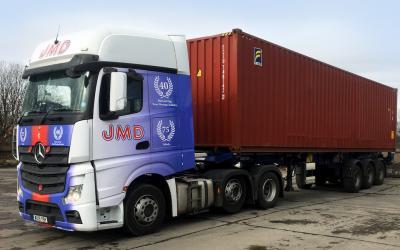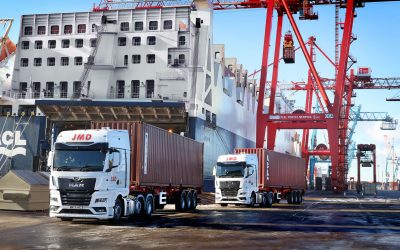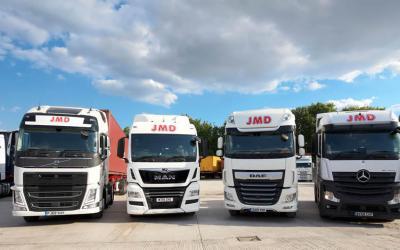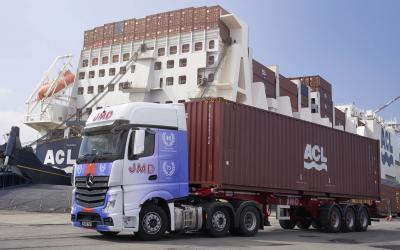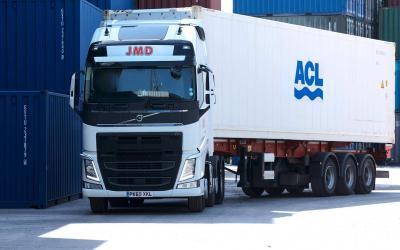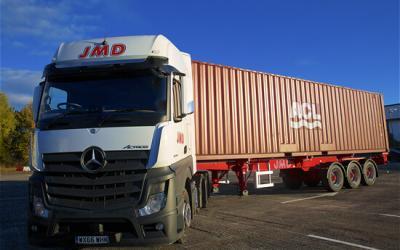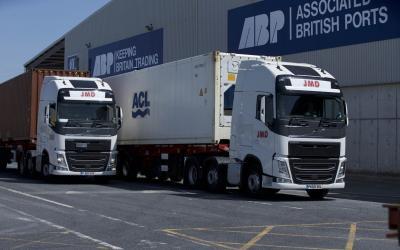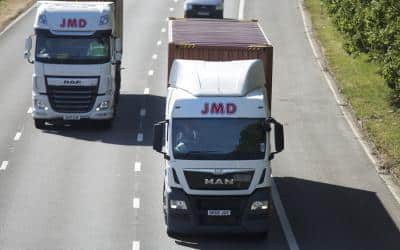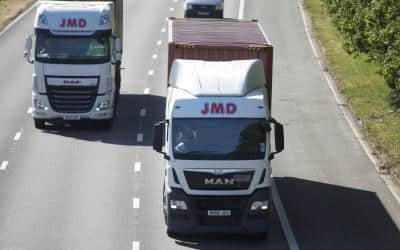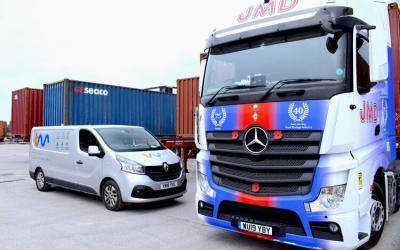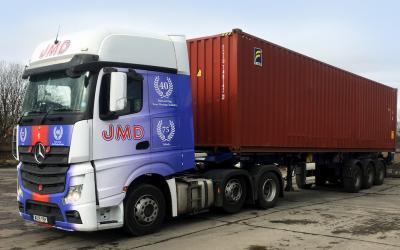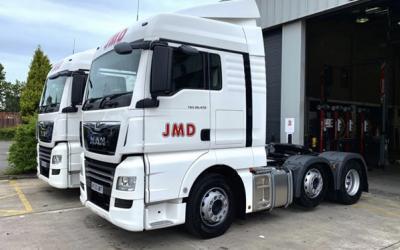Our News
Types of Containers Used in Haulage: A Comprehensive Guide
It is a continuous process of shipment of goods from one part of the world to another, and it cannot be done without shipping containers. From consumer products to raw materials, everything has to be carried over a large distance with the help of shipping containers....
Importance of Waste Management in Businesses
Effective waste management is crucial for businesses to operate sustainably and comply with regulations. Businesses contribute significantly to waste production, and implementing robust waste management strategies can mitigate environmental impacts, reduce operational...
The Importance of Container Haulage in the Supply Chain For Logistics
Container haulage in the supply chain is a crucial component when planning your global container logistics strategy from the UK to the global playing field. Effectively, it is central to the efficient movement of goods across extensive distances. Originating in the...
Industries That Rely on Haulage Services
The haulage industry is pivotal to the global economy, facilitating the efficient movement of goods across many sectors. Specialised haulage services, such as those provided by companies like JMD Haulage, ensure that materials for manufacturing, construction, and...
What are the Different Types of Haulage?
The haulage industry is responsible for moving all manner of different items safely and securely across the country throughout the day and night. For urgent supplies, to regular orders, haulage is a vital cog in many businesses that often have complex supply chains....
Advantages of Road Haulage
Haulage is defined as the act of moving goods from one location to another, by road or rail. Road haulage is moving goods by road using lorries, large trucks, or containers. Road haulage is an integral part of the British economy, with thousands of lorries taking...
How Do Refrigerated Containers Work?
Refrigerated containers commonly known as reefer containers are used to transport goods across the world. From the apples in your fruit bowl to the medication in your first aid cupboard, many items that we rely on every day are transported many miles, in reefer...
What is Haulage: Everything You Need to Know
You might have heard of haulage, but there is a chance that you might not understand what is haulage all about. Essentially, haulage involves transporting goods by road. These goods can be extremely varied, and many of the items and goods we find in shops have reached...
How to Become an HGV Driver: Guide to Become a Lorry Driver
If you are thinking about becoming an HGV driver, now is the best time to do so. There is a shortage of lorry drivers in the UK at present, which will make it easy for you to secure your perfect job. So, if you love driving, are calm, and patient, and enjoy spending...
JMD Haulage Partners with NWEAT & Jobcentre Plus to Offer HGV Driver Training
JMD Haulage, one of the North West’s leading container haulage operators, has partnered with Northwest Education & Training and Jobcentre Plus to provide individuals with fully funded HGV driver training. The scheme provided individuals who were unemployed or...
What is Refrigerated Transportation? Temperature Controlled Transport Explained
Over the last couple of decades, the world has really opened up, internet commerce has dominated the way we shop, and this, in turn, means that the need to transport goods has also grown exponentially. When demand goes up, more companies are formed to handle the vast...
What Is Container Haulage? Everything You Need to Know
When it comes to international shipping and moving goods overseas, container transport becomes a crucial part of the process. Container haulage involves transporting containers by road to their desired ports. Then they can be transferred onto ships so they can be...
What Is An ADR Licence And Who Needs It?
The Accord European relative au transport international des merchandises Dangereuses par Route is an international treaty that regulates the transport, labelling, and classification of dangerous goods. Essentially, it is an agreement in place throughout Europe that...
TrailerMaster Announces Partnership with JMD Haulage
TrailerMaster has confirmed a new relationship with JMD Haulage, one of the largest independent container hauliers in the North-West region of the UK. The trailer telematics provider has rolled out its patented Electronic Brake Performance Monitoring System (EBPMS®)...
JMD Haulage tick all the boxes with first, post-Brexit trailers from Krone
JMD Haulage, one of Liverpool’s leading container carrier operators, recently added 3 Krone Box Liners to their fleet, bringing the Krone total to 23. The latest ‘skeletal’ trailers, delivered in January, were the first ‘post-Brexit’ UK consignment from Krone to the...
What is ADR Transport : Transporting Dangerous Goods
The Agreement Concerning the International Carriage of Dangerous Goods by Road (ADR) is designed to regulate the international movement of dangerous goods on land. This agreement is implemented by treaty members, and it is designed to ensure that vehicles transport...
JMD Fleet Expansion
JMD has taken delivery of the first of 40 MAN TGX 26 470 XLX 6×2 Euro 6 D trucks to add to its existing fleet of 90 vehicles. The new state-of-the-art vehicles come with a Relax and Super Service package providing unrivalled comfort and surety features for the driver...
Covid-19 Statement
JMD Haulage continuously monitor the developments and guidelines issued with regards to the Covid-19 pandemic. We remain fully operation at this time and are fully compliant with the UK Goverment guidelines relating to Haulage Companies. Our staff are fully trained in...
JMD launches new Driver CPC Training Service
JMD (Haulage Contractors) Ltd, a family-run transport business, are now offering new Driver CPC Training Courses that provide an effective route to becoming an accomplished, safety-conscious bus, coach, or lorry driver. The new service, which is priced at £50 per...
What is Driver CPC Training and Who Needs It?
Driver CPC Training has been introduced across Europe with the core aim of improving road safety and maintaining high standards of driving. And the Driver CPC certification is now a standard part of professional driving, which all drivers must adhere to whether they...

